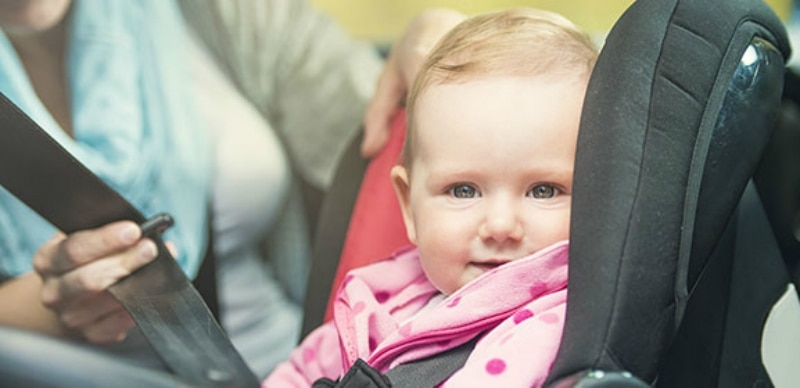
SANTIAGO – Chile has launched a national awareness campaign to educate parents on seat restraint regulation, in another major step for safety of child passengers.
This initiative is an outcome of Chilean and U.S. pediatricians’ collaboration that helped shape the new automobile safety law, according to which all children up to age 12 now must sit in the back seat. In addition, child restraint systems are required for children up to age 9, and children ages 9-12 must wear seat belts.
Violating these regulations carries big consequences. Drivers are subject to a hefty fine (66,000 to 132,000 pesos, or about U.S. $100 to $200) and suspension of driving privileges for up to 45 days.
Like in the U.S., the Chilean law also bases the type of restraint system to use on the child’s height and weight.
On March 1, the U.K. adopted new regulations that allow only children measuring more than 125cm and weighing more than 22kg to travel in a car on a backless booster cushion.
“For safety, following these regulations will be a huge improvement. Children sitting in the back seat are much less likely to be injured,” said Marilyn J. Bull, M.D., FAAP, who consulted with Chilean pediatricians.
The new regulations will result in an estimated 30% reduction in deaths in Chile where road traffic incidents are the leading cause of death for children ages 1-14, according to Traffic Safety Commission (CONASET).
The rate of child mortality due to road traffic injuries in Chile is almost three times higher than the U.S. and 27 times higher than Sweden.
“Many of these deaths and injuries in crashes are preventable,” Dr. Bull added.
The previous law only required children ages 8 or under to ride in the back seat and those ages 4 and under to be seated in child restraint systems.
However, despite the law, eight in 10 parents did not use safety restraints on daily trips due to the lack of regulation and awareness, according to a SOCHIPE statement.



